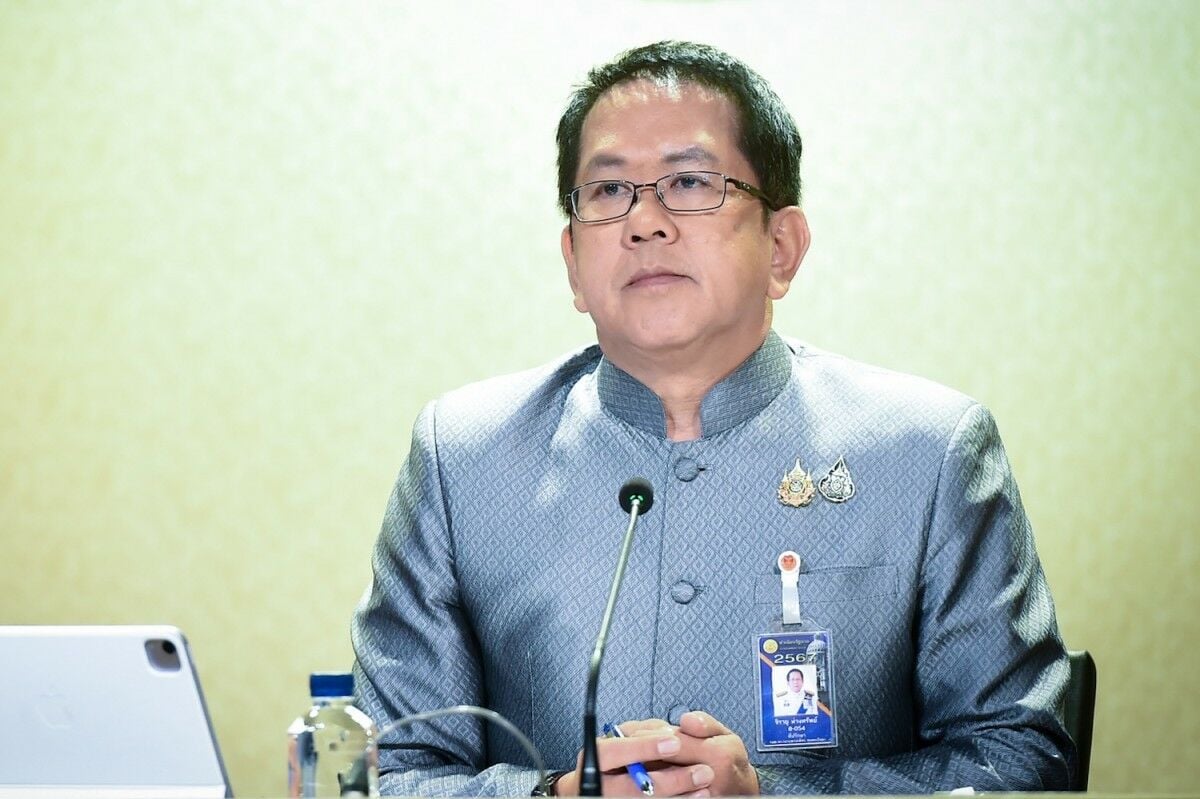Thailand’s public debt remains sustainable at 64% of GDP

The recent Cabinet meeting focused on the nation’s public debt status, revealing it remains well within sustainable limits. Public debt as of August reached 11.7 trillion baht, accounting for 64% of the country’s GDP, comfortably below the 70% benchmark for fiscal sustainability.
Government spokesperson Jirayu Houngsub detailed during the meeting that the Finance Ministry adhered strictly to the public debt management framework. This framework encompasses four key criteria, ensuring the debt level remains manageable.
As of the end of March, the government’s debt burden was 19% of projected annual revenue, far below the 35% threshold. Additionally, public debt in foreign currency represented just 1.23% of total public debt, against a 10% cap. The ratio of public debt in foreign currency to export revenue was an even smaller 0.05%, well within the 5% limit.
The Public Debt Management Office (PDMO) reassured that Thailand’s public debt level remains within acceptable limits compared to nations with similar credit ratings. Jindarat Viriyataveekul, a public debt advisor at the PDMO, highlighted that despite an additional 145 billion baht borrowed for fiscal 2024 to support a 10,000-baht handout programme for vulnerable groups, the debt level is still considered manageable.
“For fiscal 2025, public debt is projected to range between 66 and 67% of GDP, factoring in obligations from government assistance programmes. However, if GDP growth exceeds expectations, the debt ratio could be lower than anticipated.”
In related developments, Jirayu announced the Cabinet’s approval of the fiscal 2025 budget, which includes a 2.55 billion baht contingency fund for emergencies. This fund will support various projects aimed at aiding farmers affected by flooding, including enhancing rice production efficiency, pest and disease control, and providing support for crop varieties and production factors for those impacted by disasters in the 2024/2025 period.
These initiatives also encompass machinery repair projects and debt relief programmes for members of agricultural cooperatives, showcasing the government’s commitment to addressing the challenges faced by the agricultural sector due to natural disasters.
The strategic allocation reflects the administration’s focus on economic resilience and sustainability, ensuring that vulnerable communities receive the necessary support to recover and thrive, reported Bangkok Post.
What Other Media Are Saying
- FocusEconomics highlights the importance of averaging diverse public debt projections from analysts to mitigate bias, ensuring a reliable Consensus Forecast for Thailand’s economic outlook over the next decade. (read more)
- Bloomberg reports Thailand’s planned 8% increase in government borrowing aims to stimulate economic growth, with 1.1 trillion baht for budget deficits and debt restructuring, highlighting fiscal strategies amidst economic challenges. (read more)
Frequently Asked Questions
Here are some common questions asked about this news
Why is maintaining a public debt below 70% of GDP crucial for Thailand?
It ensures fiscal sustainability, maintaining investor confidence and economic stability while allowing room for unexpected financial needs.
How might exceeding GDP growth expectations affect Thailand’s debt ratio?
Exceeding GDP growth could lower the debt-to-GDP ratio, improving fiscal health and potentially increasing government spending flexibility.
What if Thailand’s public debt in foreign currency surpasses the set limits?
It could increase vulnerability to exchange rate fluctuations, impacting debt repayment and potentially destabilizing the economy.
How does the 2025 budget reflect Thailand’s approach to economic resilience?
By allocating funds for emergency contingencies and agricultural support, it emphasizes readiness and support for vulnerable sectors against natural disasters.
What might be the long-term effects of the 10,000-baht handout programme on Thailand’s economy?
It could stimulate short-term economic activity and aid vulnerable groups but may also increase fiscal pressure if not managed well.
Latest Thailand News
Follow The Thaiger on Google News:


























